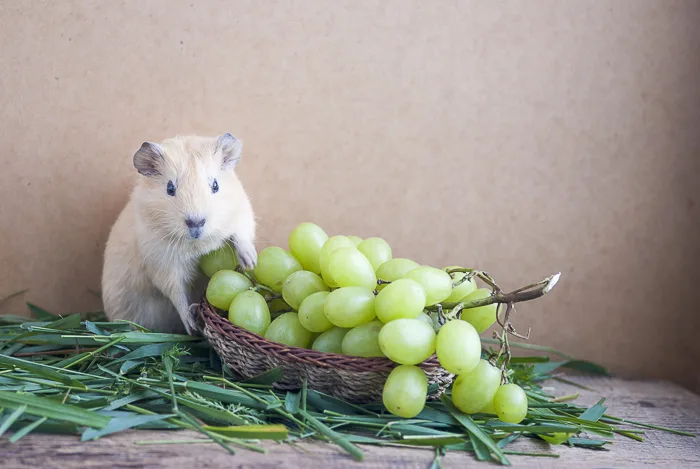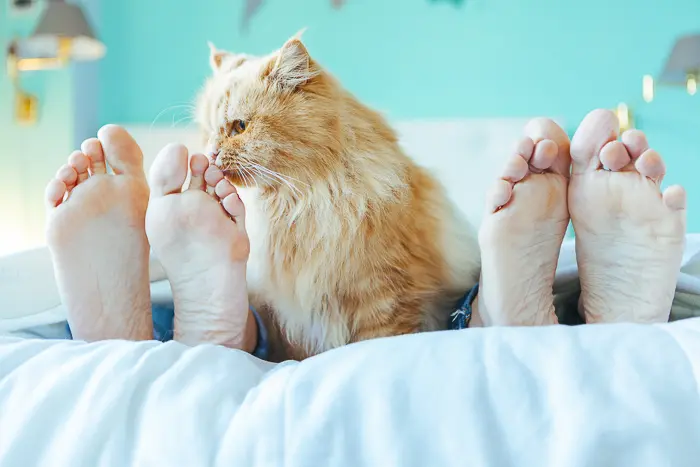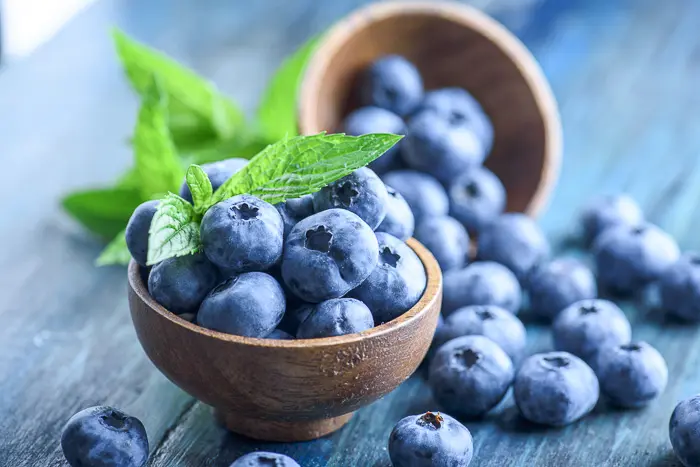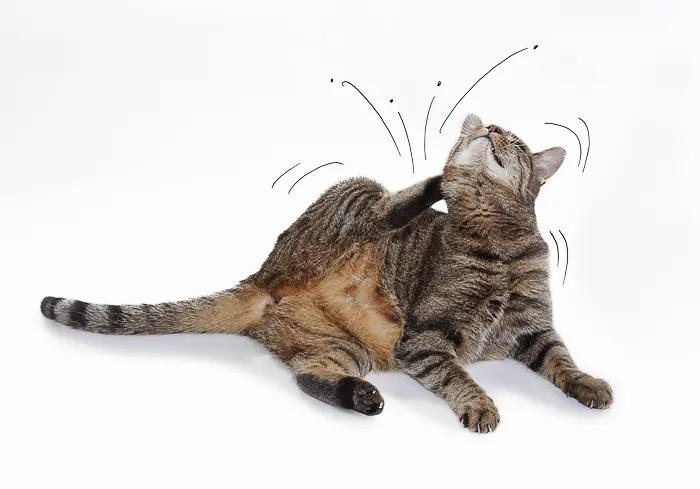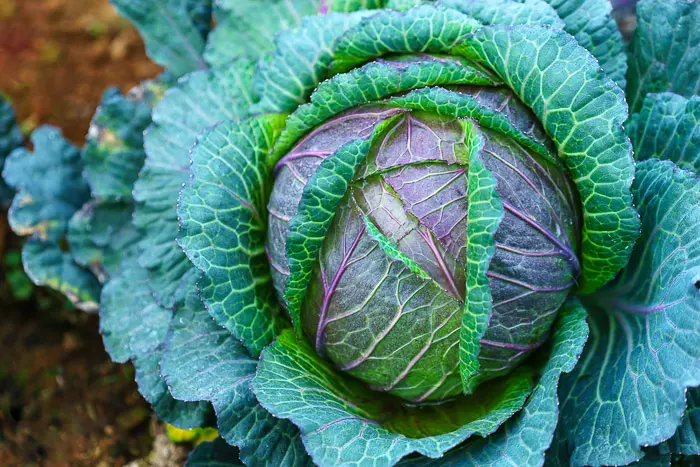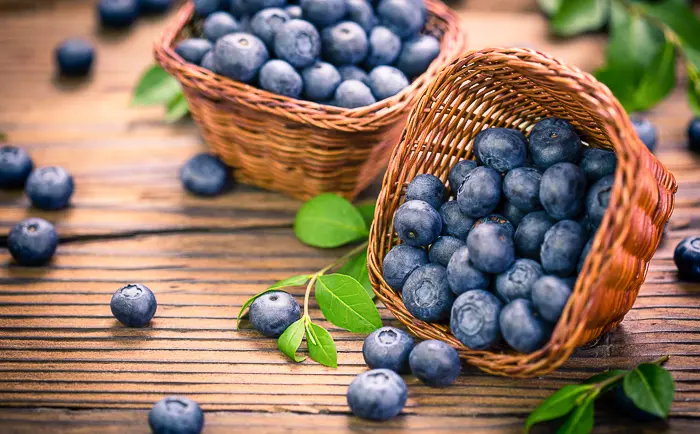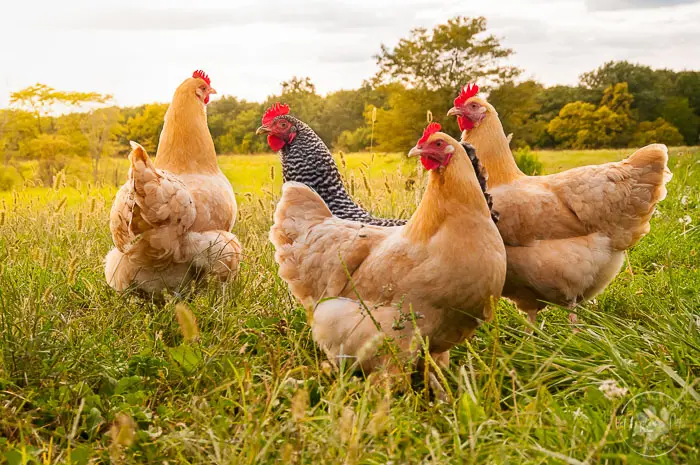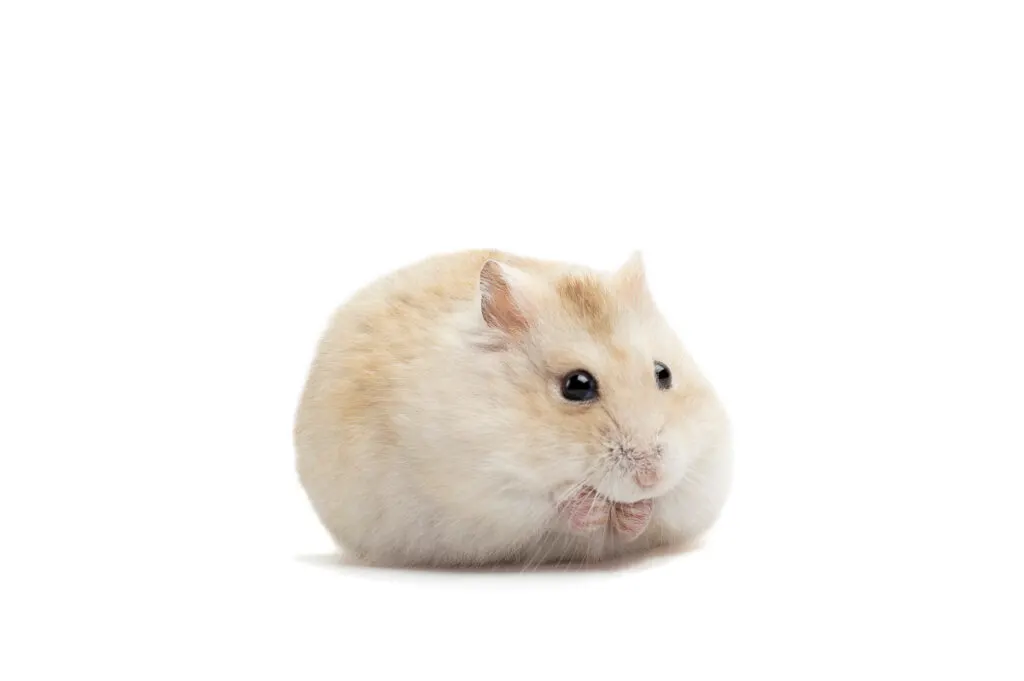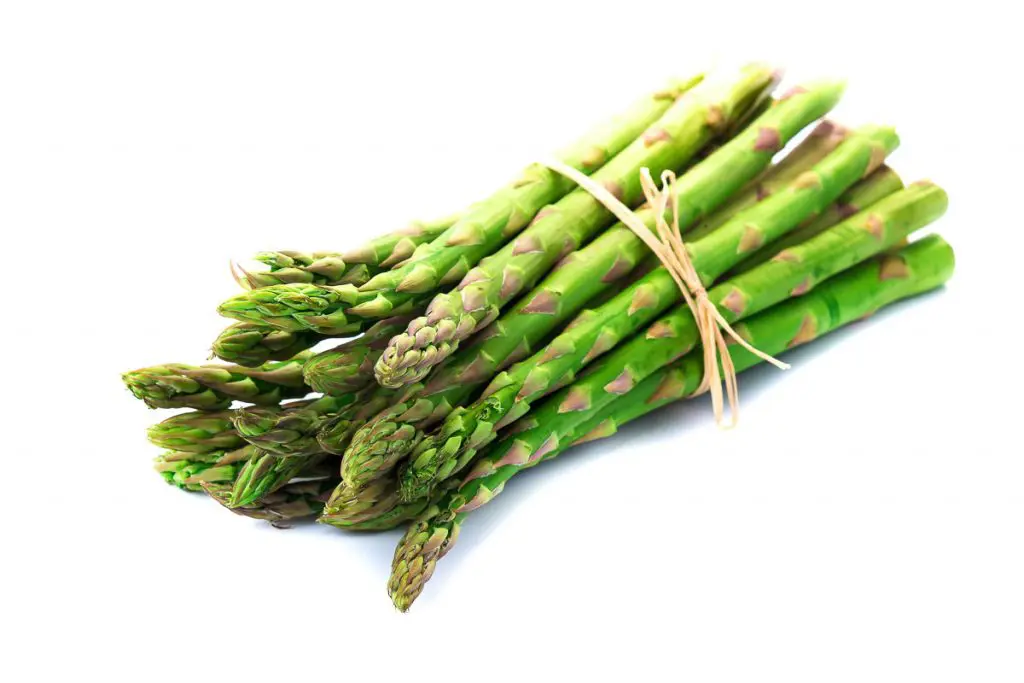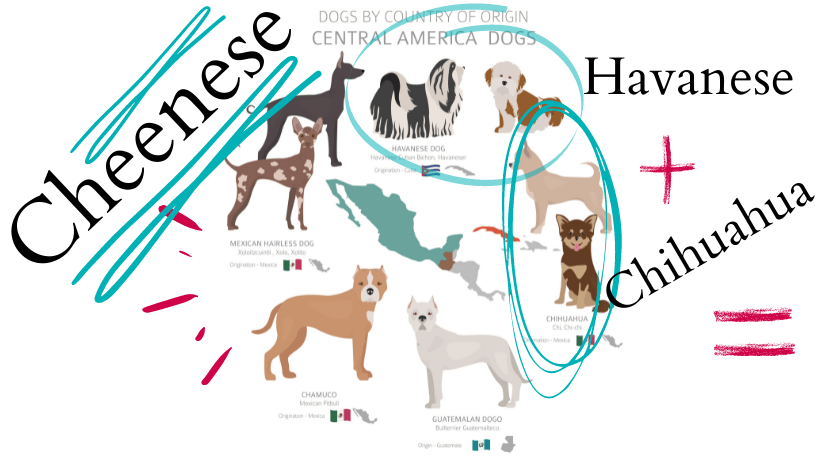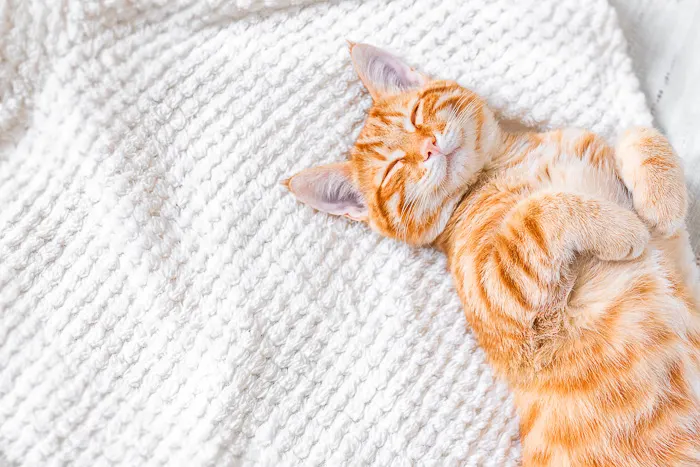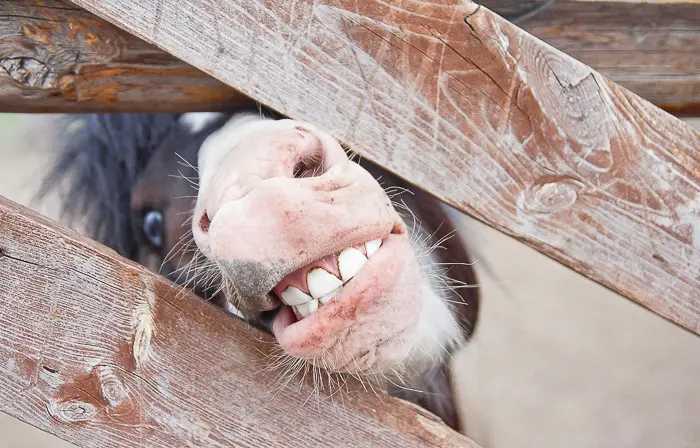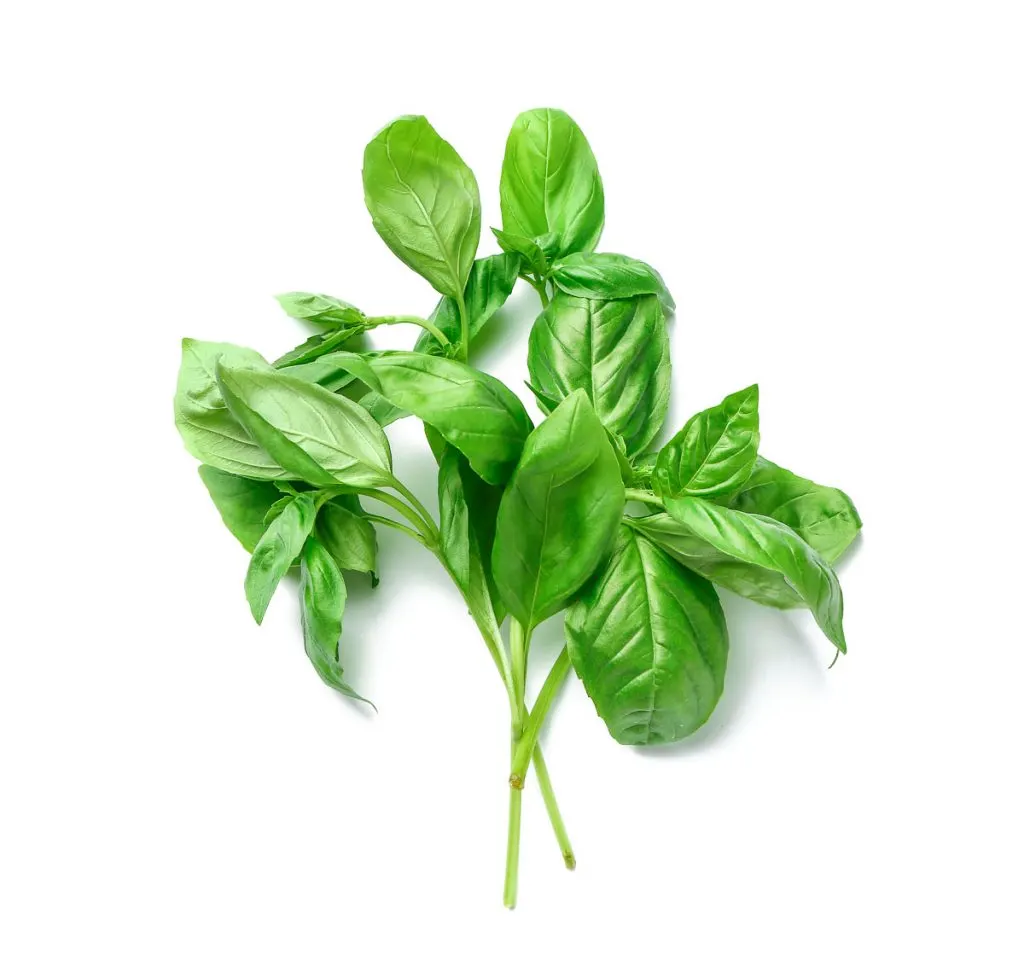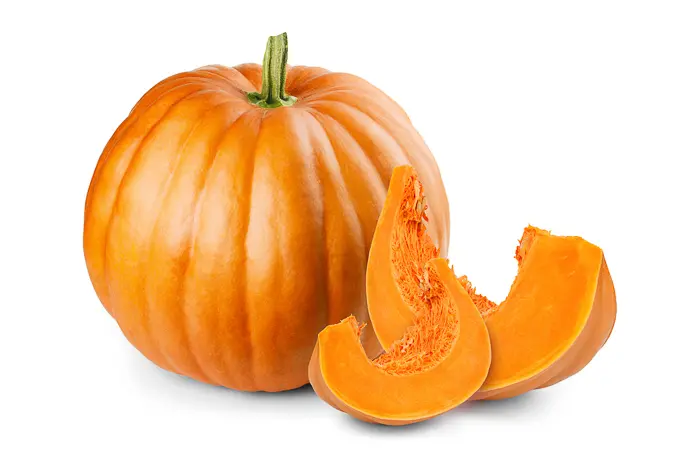Most rabbits LOVE their veggie snacks and it's just so tempting to give them people food that you are snacking on. However, there are some foods that are safe for humans but can be harmful to your pet bunny. Radishes are often in question: Can rabbits eat radishes safely?
Dr. Jess explains the answer below:
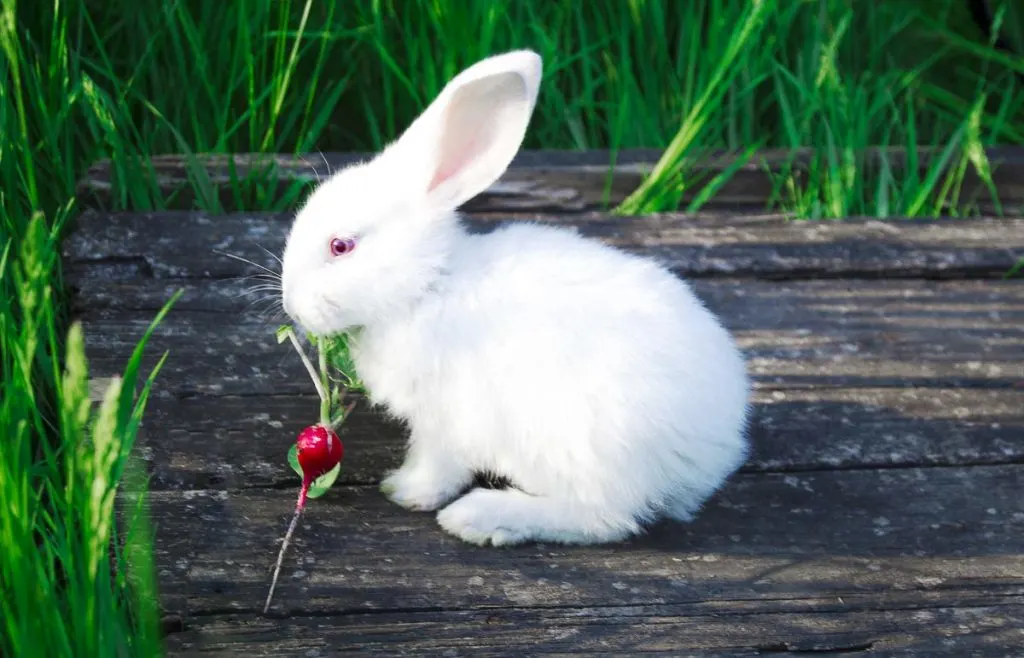
Check out whether rabbits can eat tomatoes here!
What Are Rabbits?
Rabbits and bunnies are small mammals that hop around from place to place.
They are commonly seen as pets with their sweet eyes, floppy ears, furry faces, and cute whiskers.
Rabbits come in many colors, shapes, and sizes, most commonly seen in shades of white, brown, black, and patches or combinations of those colors.
They can be seen with a large ear for their body size and even have long-eared varieties with even larger drooping ears.
Rabbits have long incisors (front teeth) that are constantly growing and needing to be filed either naturally or by the help of some intervention, both discussed further into this article.
What Do Rabbits Need From a Healthy Diet?
A well-balanced rabbit diet will need to deliver a multitude of things to the bunny ingesting it.
Just like humans, rabbits need the right combination of nutrients, vitamins, minerals, and water to keep their organs working and functioning properly.
However, the daily nutritional requirements for a rabbit differ quite greatly from that of a human, and that is reflected in the common diet that most healthy and happy pet rabbits eat.
What Does a Typical Rabbit Diet Consist of?
An adult rabbit's main source of food in their diet should come mostly from high-quality hay.
Hay is a forage that is low in calories and high in fiber, easy on the rabbit's digestive system.
Other pieces of the rabbit's diet may include commercial pellets and/or treats and snacks such as fruits and vegetables.
However, not all fruits and vegetables are safe for your bunny to have.
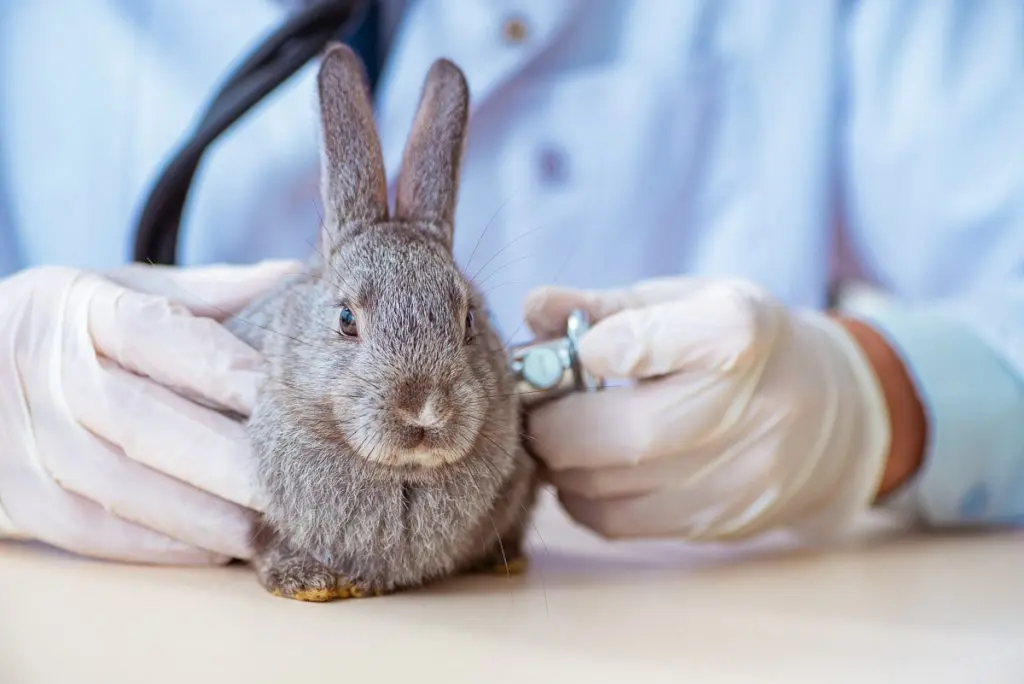
Let's Talk Radishes:
Radishes are a type of root vegetable that are pulled from the ground when harvested for food.
Radishes come in many different colors, shapes, and sizes.
Here in the United States, the popular radish is about the size of a golf ball, is round, and typically red. Other radishes take on a white/cream color or can be purple or black-looking as well.
Some radishes give off a light sweet taste, while others have a more unami or earthy-peppery flavor profile to them.
Radish Nutrition:
Radish have many well-known health benefits associated with them. But let's start with their nutritional profile. According to Wikipedia a radish contains:
“In a 100-gram (3 1⁄2-ounce) reference serving, raw radishes provide 66 kilojoules (16 kilocalories) of food energy and have a moderate amount of vitamin C (18% of Daily Value), with other essential nutrients in low content (table). A raw radish is 95% water, 3% carbohydrates, 1% protein, and has negligible fat.”
https://en.wikipedia.org/wiki/Radish
Good Source of Vitamin C:
Radishes have a nice amount of vitamin C in them – a vitamin that helps with the protection of important body systems that keep the body running and functioning appropriately.
Low in Calories:
Too many calories can lead to weight gain – that's a well known fact. So if you have an overweight bunny, this treat may be a good option for you!
Contains Antioxidants:
Radishes are rich in antioxidants and minerals like calcium and potassium.
Put that all together and radish can help lower things like blood pressure – therefore decreasing some of the risks that predispose to heart disease and high blood pressure
Helps Digestive Function:
Contains fiber to help aid in digestion.
As hindgut fermenters, rabbits need a large amount of fiber in their diets to keep their gastrointestinal tract healthy and moving and digesting food appropriately.
May Lower Blood Sugar Levels
Radishes contain glucosinolate and isothiocyanate, chemicals that may help regulate blood sugar levels. This will come in handy if you have a diabetic pet!
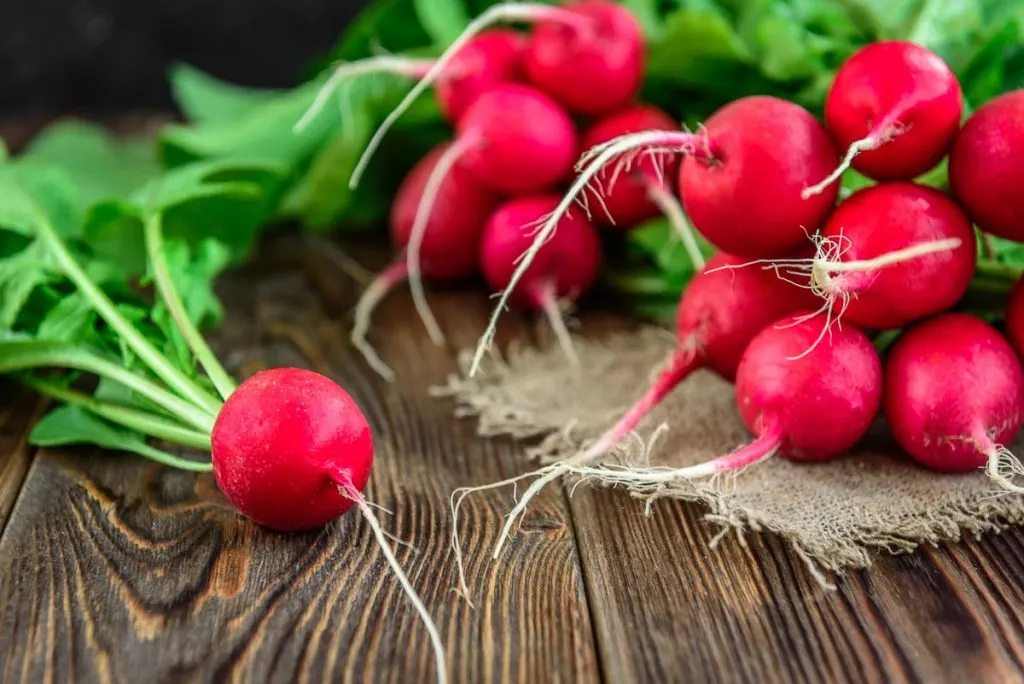
Do Rabbits Eat Radishes?
Most rabbits will eat a radishes when offered.
In a veggie garden, most rabbits will chose vegetables like peas, beans, beets, and carrots.
But just because rabbits DO eat radishes does not necessarily mean that this is the best or safest choice for your pet.
Don't be too worried if your rabbit does not eat a radish that is offered- it's normal. You will find another veggie alternative as a source of fresh food that your bunny can enjoy eating.
Can Rabbits Eat Radishes? Is it Safe?
There are some foods that us humans can eat that are actually toxic to your rabbit and need to be avoided all together.
While there isn't anything toxic to rabbits in the actual radishes itself when given in small doses, you shouldn't give them too much because problems may arise as I will discuss further down in this article.
Pet owners can chose to feed radishes to their rabbits, but it should not make up their entire diet. Rabbits prefer munching on grass, commercial feed pellets, and hay, along with a bowl of clean, fresh water.
You see, rabbits are herbivores and need a diet which is high-in fiber and low in sugar and fat.
They get their fiber supplied in the form of plants, such as hay which is a roughage that contains a lot of fiber.
This fiber is beneficial for two reasons:
- Dietary fiber keeps the rabbit's digestive system running smoothly (it's the same reason why some people take a fiber supplement like Metamucil!).
- The physical roughage (hay) helps keep the rabbit's teeth healthy and worn down as their teeth are continually growing and need to be filed in order to prevent overgrowth.
So, long story short- Yes!
Adult rabbits can have radishes, if offered to them safely, and I'll cover that in just a bit.
You do not want to feed the wrong radish or the wrong amount or frequency, potentially making your furry friend unintentionally sick.
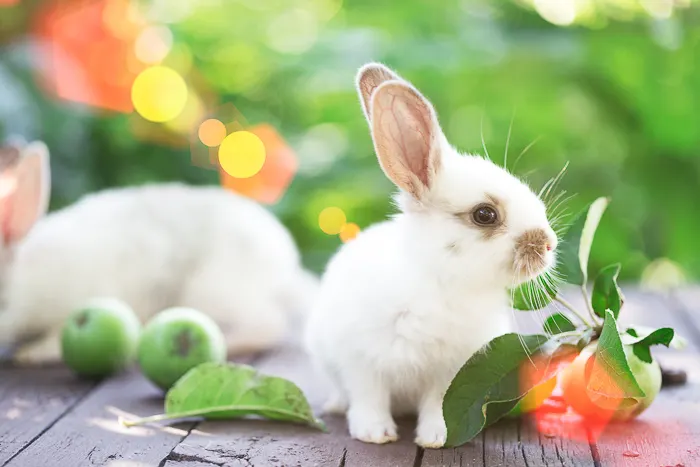
Can Baby Bunnies Eat Radishes?
Compared to their adult counterparts, baby rabbits have much more sensitive gastrointestinal systems.
Avoid feeding baby bunnies any kinds of fruits and vegetables until they reach 12 weeks of age to allow their stomachs to mature with them.
Then, when ready to introduce them to juicy vegetables, take it very slowly, waiting at least 24 hours to observe any potential adverse side effects, before moving on and trying more of the same veggie snack or a different tasty treat.
Remember – baby and young, and juvenile rabbits have more sensitive digestive systems!
Wait 24 hours to see their reaction.
If everything is fine, you can move to the next treat.
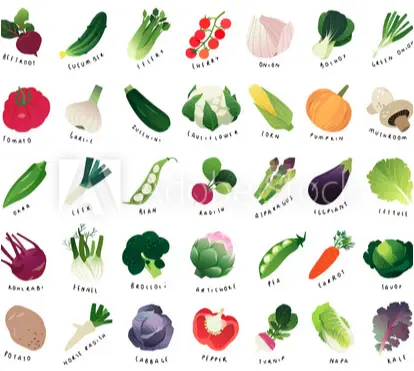
How About Radish Stems?
There’s no reason that bunnies can't enjoy chewing on radish stems unless they just don't like radishes at all.
They love having little things in their mouths to chew on and to keep them occupied and entertained throughout their busy days!
The stem texture is not too tough and you cut them in medium-sized pieces,for them to nibble on.
But just like anything else that they can stick in their mouths, these can be a choking hazard so monitor your piggie while snacking on these stems!
Can Rabbits Eat Cooked Radish?
Do not give your rabbit any cooked radish.
Any cooked or processed radish is not recommended since your rabbit is an herbivore and they rely on raw foods to get their nutrients.
Everything a rabbit needs can be provided in fresh and raw form. Your rabbit's stomach is just not made to handle cooked food, including radishes.
One big advantage with offering raw vegetables is that it’s not only healthier for your rabbit, but it is much less effort on your part!
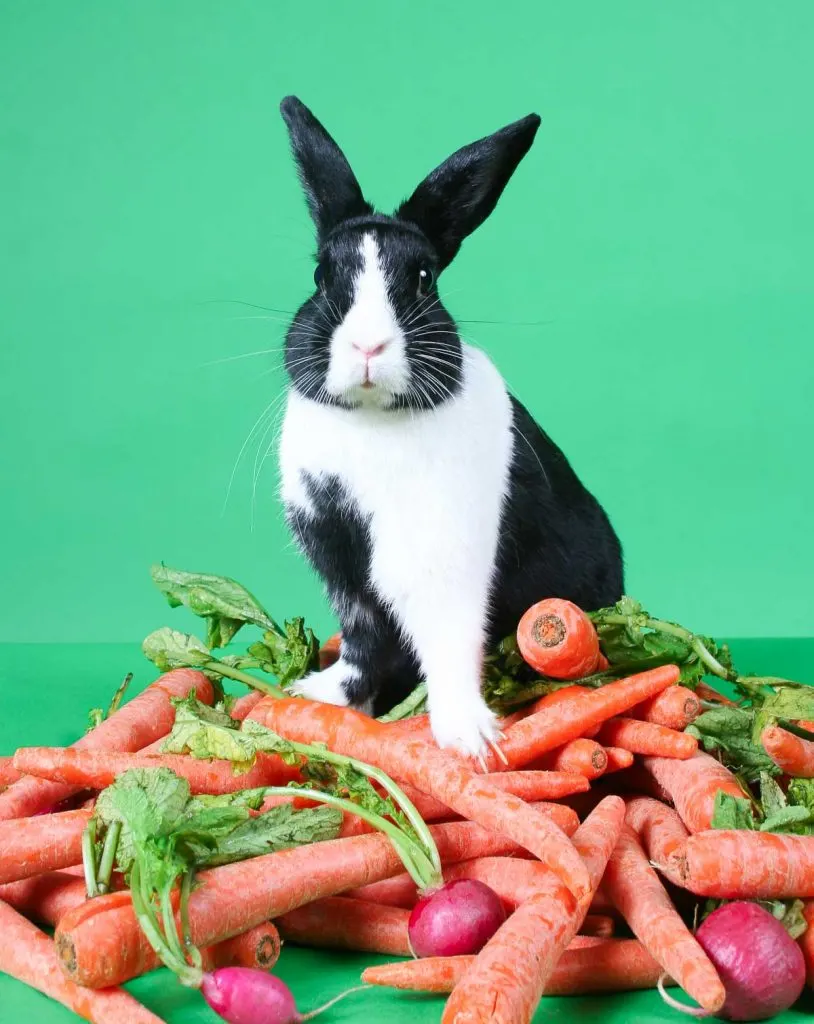
Medical & Health Concerns of Feeding Radishes to Rabbits:
Are there any circumstances when radishes might be bad for your pet?
Yes, some of the common issues seen with feeding radishes to rabbits include:
- Oxalic acid: Too much high oxalic acid is incredible detrimental to rabbits – so don't feed too much to your bunny!
- Pesticides: Radishes should always be washed to make sure they are free of any pesticides or chemicals that could be harmful to rabbits.
- Parasites: Radishes should be checked over for parasites that can lead to potential parasite problems with your rabbit
- Overly Ripened: Avoid rotten fruits and vegetables that can cause diarrhea and gastrointestinal upset.
- Baby Bunnies: Baby bunnies have a more sensitive digestive system than their adult counterparts do, and therefore you shouldn’t give your rabbit friend any fruits or vegetables until they reach around 12 weeks of age.
How To Feed Radishes To A Rabbit:
First step to focus in on is the serving size that you are giving your fur baby. Start with offering your rabbit just a bite or two of radish and if no adverse signs appear, then you can slowly increase the amount you feed.
Depending on your rabbit’s size, the average radish portion should be about 1/2 – 1 handful of fresh, cleaned radish.
Rabbits can be fed radishes on a daily basis, but only in small quantities.
Moderation is key here!
How Much Radish to Feed:
Fresh vegetables should be as a supplement to your pet rabbit's already well-balanced diet.
Depending on your adult rabbit’s size, the average radish portion should be about 1-2 tablespoons worth of fresh, cleaned radishes. If your pet is on the smaller side, feed a smaller amount, and if on the larger side, you can work up to feeding on the larger side of this amount.
Keep in mind that too many vegetables too often can cause digestive distress.
Common Signs of Adverse Reaction:
- lethargy
- diarrhea/loose stool
- anorexia
- excessive or increased itching/scratching/licking of skin or paws
Food Alternatives:
Summary:
Rabbits can have pieces of ripe, clean, fresh radish in moderation.
Too many radishes can cause a multitude of health problems for the bunny.
Do not feed immature rabbits or rabbits with underlying health conditions radish even as a treat.
If you have concerns regarding feeding your rabbit radishes, contact your local veterinarian beforehand.
Article Resources:
- Oglesbee B. The 5 Minute Veterinary Consults Ferret and Rabbit, Blackwell 2006
- Rabbit Care

The information provided in this article is not a substitute for professional veterinary help.
![[Vet Explains Pets]](https://vetexplainspets.com/wp-content/uploads/2024/09/cropped-vetlogo-199x66.png)


